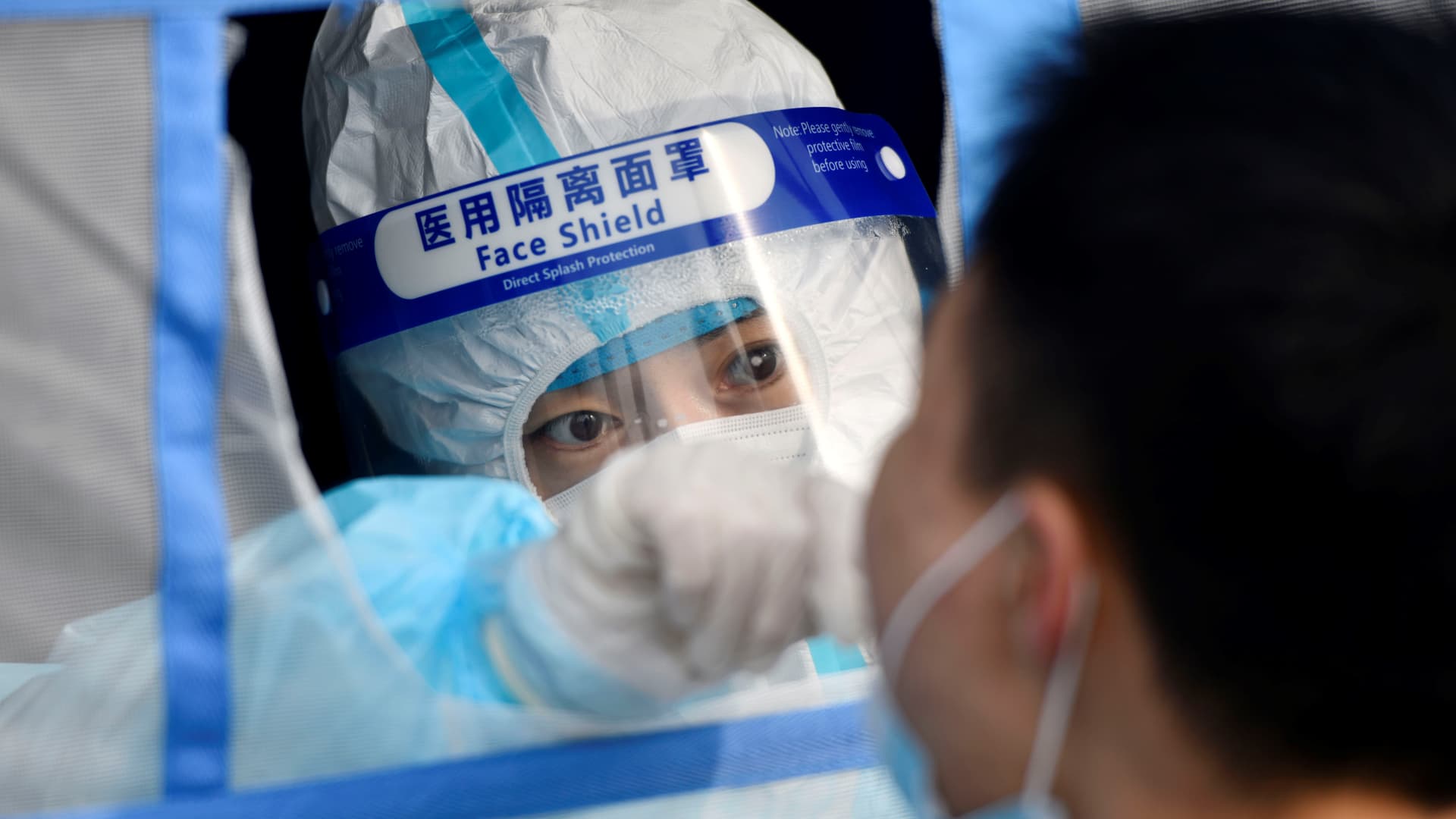
A medical worker takes a swab sample from a citizen for nucleic acid test at a testing site in Binhai New Area in north China’s Tianjin, Jan. 9, 2022.
Zhao Zishuo | Xinhua News Agency | Getty Images
A health-care worker has reportedly tested positive for the omicron strain of the coronavirus just 20 days after having an infection caused by the delta variant, according to Spanish researchers.
The case study of the 31-year-old woman, who was fully vaccinated and boosted, is to be presented by researchers at this year’s European Congress of Clinical Microbiology & Infectious Diseases taking place in Portugal this coming weekend.
The 20-day gap between the infections is the shortest known.
The woman first tested positive on Dec. 20 last year in a PCR test during staff screening at her place of work. The patient, who didn’t develop any symptoms, self-isolated for 10 days before returning to work.
On Jan. 10 this year, just 20 days after first testing positive, she developed a cough, fever and felt generally unwell and did another PCR test. This was also positive.
Whole genome sequencing showed that the patient had been infected by two different strains of Covid-19. The woman’s first infection was with the delta variant while the second, in January, was with the more transmissible omicron variant that had been identified as a variant of concern by the World Health Organization last November.
Studies showed that omicron is much more infectious than delta and can evade the immunity people acquire from past infections and Covid vaccination, which protects against severe infection, hospitalization and death.
The omicron variant has since started to become supplanted by a subvariant of the strain, known as BA.2, while other variants have also since emerged, including one dubbed XE.
One of the study’s authors, Dr. Gemma Recio of the Institut Català de Salut of Tarragona in Spain, said the case highlights the potential of the omicron variant to evade the previous immunity acquired either from a natural infection with other variants, or from vaccines.
“In other words, people who have had Covid-19 cannot assume they are protected against reinfection, even if they have been fully vaccinated,” Recio said.
“Nevertheless, both previous infection with other variants and vaccination do seem to partially protect against severe disease and hospitalization in those with omicron.”
She said the case underscored the need to carry out genomic surveillance of viruses in infections in those who are fully vaccinated and in reinfections as “monitoring will help detect variants with the ability to partially evade the immune response.”
The material has been peer reviewed by the European Congress of Clinical Microbiology & Infectious Diseases selection committee, but there is no full paper at this stage and the authors have not yet submitted the work to a medical journal for publication.






